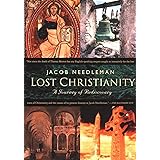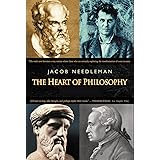
Enjoy fast, free delivery, exclusive deals, and award-winning movies & TV shows with Prime
Try Prime
and start saving today with fast, free delivery
Amazon Prime includes:
Fast, FREE Delivery is available to Prime members. To join, select "Try Amazon Prime and start saving today with Fast, FREE Delivery" below the Add to Cart button.
Amazon Prime members enjoy:- Cardmembers earn 5% Back at Amazon.com with a Prime Credit Card.
- Unlimited Free Two-Day Delivery
- Streaming of thousands of movies and TV shows with limited ads on Prime Video.
- A Kindle book to borrow for free each month - with no due dates
- Listen to over 2 million songs and hundreds of playlists
- Unlimited photo storage with anywhere access
Important: Your credit card will NOT be charged when you start your free trial or if you cancel during the trial period. If you're happy with Amazon Prime, do nothing. At the end of the free trial, your membership will automatically upgrade to a monthly membership.
Buy new:
$19.00$19.00
Ships from: Amazon.com Sold by: Amazon.com
Save with Used - Good
$6.64$6.64
Ships from: Amazon Sold by: saveherenow

Download the free Kindle app and start reading Kindle books instantly on your smartphone, tablet, or computer - no Kindle device required.
Read instantly on your browser with Kindle for Web.
Using your mobile phone camera - scan the code below and download the Kindle app.

OK
Money and the Meaning of Life Paperback – September 15, 1994
Purchase options and add-ons
- Print length352 pages
- LanguageEnglish
- PublisherDoubleday
- Publication dateSeptember 15, 1994
- Dimensions5.5 x 0.8 x 8.2 inches
- ISBN-100385262426
- ISBN-13978-0385262422
Frequently bought together

Similar items that may deliver to you quickly
 Time and the Soul: Where Has All the Meaningful Time Gone--And Can We Get It Back?Jacob Needleman and John CleesePaperback
Time and the Soul: Where Has All the Meaningful Time Gone--And Can We Get It Back?Jacob Needleman and John CleesePaperback
Editorial Reviews
From the Publisher
From the Inside Flap
From the Back Cover
About the Author
Product details
- Publisher : Doubleday; New edition (September 15, 1994)
- Language : English
- Paperback : 352 pages
- ISBN-10 : 0385262426
- ISBN-13 : 978-0385262422
- Item Weight : 11.6 ounces
- Dimensions : 5.5 x 0.8 x 8.2 inches
- Best Sellers Rank: #655,872 in Books (See Top 100 in Books)
- #312 in Religious Ethics (Books)
- #641 in Chakras (Books)
- #1,656 in Spiritualism
- Customer Reviews:
About the author

Jacob Needleman, the acclaimed author of The American Soul and Money and the Meaning of Life, is a professor of philosophy at San Francisco State University, and a former director of the Center for the Study of New Religions at the Graduate Theological Union in Berkeley.
Customer reviews
Customer Reviews, including Product Star Ratings help customers to learn more about the product and decide whether it is the right product for them.
To calculate the overall star rating and percentage breakdown by star, we don’t use a simple average. Instead, our system considers things like how recent a review is and if the reviewer bought the item on Amazon. It also analyzed reviews to verify trustworthiness.
Learn more how customers reviews work on Amazon-
Top reviews
Top reviews from the United States
There was a problem filtering reviews right now. Please try again later.
What is money and why does it make us so crazy? Needleman's concept, drawn from the study of history, is that man has always been considered to have two natures- a lower and a higher, and that while equal, the lower must be in service of the higher. Money, he suggests, was originally a technology developed to allow the exchange of material goods in a way that humans dependence on each other and the force of life (call it God if you wish) was acknowledged.
The great trouble, it was recognized, was the illusion that man could be completely independent. The ego then is the vanity that one can be completely self-sufficient, and "does not need to breathe the air of God." Money then is not evil in and of itself, but offers the ability to create a perception of reality that doesn't exist. He unpacks a rare story of King Solomon to illustrate the false I which suffers because the connection between the lower and higher natures, the paradoxical balance humans must strive for- became severed.
I really love Needlemans' work because he touches frequently on "spirit," without actually implying a Christian God or any sort of New-Agey energy manifestation. He approaches from a purely philosophical perspective that points to all of the great traditions and advanced societies of the past that had first made these distinctions as central to being human. The goal of life, then being how to live well in both worlds.
The problem, he says, is that these natures were split. In our religious history the higher and lower were separated, with all material things being seen as evil. In reaction perhaps, the modern world recognizes only the lower as real, which he describes as full of childish impulses of the body.
He also points out that many of our so-called material desires are manufactured for us, and do not stem from our actual, real desires for goods or services. "Perhaps we do not focus on things enough," he says. Suggesting that the we've lost our perception of what we actually want. "We live in an outer world that is masquerading as the inner world."
The thesis of the book is then that money itself is not evil, nor any of the things it buys, but the use of money without higher directing forces leads us to a loss of consciousness of our interior worlds. Older civilizations would put sacred symbols on one side of their coins, and a material one on the other to remind people of the sacred nature of transaction.
"At the core of all religious teachings, man is two-natured. Human life has meaning only insofar as we consciously and intentionally occupy two worlds at the same time. One force alone can never bring meaning into human life. Meaning appears only in the place between the worlds, in the relationship of two worlds, two levels, two fundamental qualities of power and energy.
Money is now, at this period of civilization, the chief representative of one of these fundamental worlds. That is its extraordinary, immense significance. We must understand it and respect it for that. THis "lower" world of money is not evil. for us, as beings build to live consciously in two worlds, real evil consists solely of those factors in ourselves that prevent conscious awareness of both the inner and the other world. It is not money itself which obstructs this awareness." -Jacob Needleman
For anyone with a philosophical streak, this book offers excellent insight into the deeper nature of what money is, and has historically represented. I found the concept quite healing. Having grown up inside a society where money is not questioned or examined I had long felt something was off about the way we talked about. This put money in perspective and restored the concept of balance between the inner and outer worlds, the higher and the lower.
Needleman also points out something else that had long been feeling off to me- historically, cultures organized their practices to promote a sense of serving or striving towards an inner ideal while living in the outer world, but no more. In our day this translates into businesses divorced from actually providing beneficial services to people, or separated from the relationship to the source of the goods. "Not needing to breathe God's air."
The illusion of separation and the lack of need to be of service allows the ego, the false sense of I that is completely self-sufficient, to be the dominating force of business and monetary transactions.
Restoring our sense of relationship, and the living experience of having a higher, inner nature to serve and become increasingly conscious of, it key to fixing the relationship we have with money.
The author makes a convincing explanation for the numinous power of wealth, a power partly due to the fact that two thousand years of Christianity turned away from matter and the body, which have now had their revenge via the symbol of the almighty dollar, America's real religion.
I almost gave this book a 3 because 1. it has no index, and I hate that; and 2. no effort was made to edit out gender-biased language ("man," "the nature of man," etc.). Oh, and 3. the publisher needs to spend more on the paper: it's no good for penciling notes on.
I'm not certain that the question of the integrity of one's work comes down to the quality of one's attention, as the author seems to maintain. The dilemma, say, of a scientist who designs nuclear weapons and then realizes one day--perhaps when jobs are scarce--that the work is eating up his soul even though it supports his family becomes a real dilemma, not only a problem of the ego that vanishes in the light of understanding. Doing a job he feels to be evil consciously doesn't make it any less evil to him; and consciously quitting and letting his family starve while he looks for work hugely impacts them. In fact, it's his heightened awareness and its unwillingness to "turn away from truth" that deprives him of his ability to feel good about his integrity no matter what he decides.
Needleman is right, though, that we must make peace with our relationship with money if we're to heal the split between our physical requirements and our thirst for meaning. To do that we need more, not less, "materialism," a more conscious probing into matter, the body, the things of the world, which today's electronicized economics have gone far toward dematerializing.
The book reminds me a bit of a quotation by Walter Kaufmann, who wrote about Shakespeare's solution to the dilemma of vocation vs. occupation (remember that, like Beethoven, the world's pre-eminent playwright was also an efficient businessman):
It has almost become a commonplace that the modern artist
has lost contact with his audience and that the public no
longer supports him as in previous ages...Shakespeare came
to terms with the obtuseness of his public: he gave his pearls
a slight odor of the sty before he cast them. Far from cheap-
ening his art, he turned the challenge of a boorish, lecherous,
and vulgar audience to advantage and increased the richness
and the subtlety of tragedy so vastly that age cannot wither it,
nor custom stale its infinite variety. -- Kaufmann, FROM SHAKESPEARE TO EXISTENTIALISM
Top reviews from other countries
Excellent book, excellent content. I'm sure you will find what you are looking for in this packed volume of information. You may be shocked also by some of the ideas that emerge.











